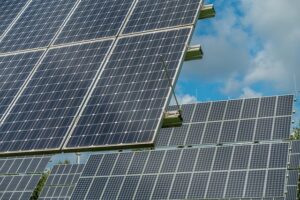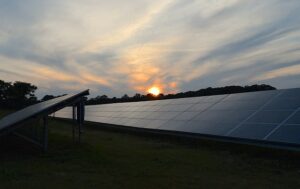
Debunking Myths About Solar Panels: What You Need to Know
In recent years, solar energy has surged in popularity as an alternative source of power, and with that popularity comes a myriad of misconceptions. Many potential users are deterred from harnessing the benefits of solar panels due to myths that have taken root in popular culture. This article aims to debunk some of the most common myths surrounding solar panels, providing you with a clearer understanding of their advantages and potential.
Understanding Solar Panels
Solar panels, also known as photovoltaic (PV) panels, are devices that convert light from the sun into electricity. They work by using semiconductor materials, typically silicon, to absorb sunlight, which then generates an electric current. This technology has evolved rapidly, making solar energy one of the most sustainable and renewable energy sources available today. Despite these advancements, many misunderstandings continue to cloud public perception.
Myths and Realities
Myth 1: Solar Panels Are Too Expensive
One of the most pervasive myths about solar panels is that they are prohibitively expensive. While the upfront costs can be significant, the long-term savings on electricity bills and potential tax incentives can more than offset the initial investment. Over the last decade, the cost of solar technology has decreased dramatically – by nearly 80% since 2010. Moreover, government incentives, such as tax credits and rebates, can significantly reduce the cost burden for homeowners and businesses alike.
Myth 2: Solar Panels Only Work in Sunny Weather
Another common misconception is that solar panels are ineffective in cloudy or rainy conditions. Although it is true that solar panels perform optimally in direct sunlight, they can still generate electricity on overcast days. Modern solar panels have been designed to capture diffuse sunlight as well, meaning they can still function and produce energy even when the sun isn’t shining brightly. In fact, many regions with less sunlight have seen substantial solar power adoption, proving that the technology is versatile and effective under varying weather conditions.
Myth 3: Solar Panels Require Too Much Maintenance
Some potential users fear that solar panels will demand excessive upkeep and maintenance. The reality, however, is that solar panels are designed to be quite low-maintenance. Most systems require only occasional cleaning to remove dust and debris that could impede efficiency. Additionally, solar panels are built to withstand various weather conditions, and reputable installers offer warranties that can span 20 to 25 years. In many cases, the long lifespan of solar panels, combined with minimal maintenance requirements, makes them a truly hassle-free energy solution.
Myth 4: Solar Panels Are Not Efficient Enough
Efficiency is a significant concern for anyone considering solar energy. It is true that solar panels have efficiency ratings, which measure how much sunlight they can convert into electricity. However, advances in technology have led to increasingly efficient solar panels, with many of today’s models achieving efficiency ratings of over 20%. Additionally, even less efficient panels can still provide substantial energy savings compared to traditional energy sources. In many instances, households can harness enough power to cover a significant portion of their electricity needs, if not all of them.
Myth 5: Solar Energy Is Bad for the Environment
A common argument against solar energy is its environmental impact. Critics often cite the resources used in manufacturing solar panels as their drawback. It is important to note, however, that while the production of solar panels does require energy and raw materials, the life cycle analysis indicates that solar energy has far lower carbon emissions and a smaller ecological footprint compared to fossil fuels. Moreover, as the technology evolves, manufacturers are increasingly adopting sustainable practices, making solar energy one of the cleanest forms of electricity generation available today.
Myth 6: Solar Panels Will Damage Your Roof
Many homeowners are concerned about the installation of solar panels potentially damaging their roofs. However, when properly installed by experienced professionals, solar panels typically do not pose a risk to your roof. In fact, solar panel installation can prevent damage caused by harsh weather, as they act as an additional layer of protection. Many installers will also assess the condition of the roof before installation and recommend any necessary repairs beforehand to ensure optimal performance and longevity.
Myth 7: You Need a Battery to Store Solar Energy
Many people believe that battery storage is a necessity for solar panel systems, which often deters them from making the switch. While batteries can provide energy storage for off-grid applications or enhance energy independence, they are not essential for every solar system. Many homeowners connect their solar panels directly to the grid, allowing them to draw electricity when their solar panels aren’t producing enough energy. Net metering options can enable users to receive credits for excess energy produced, balancing their electricity usage effectively.
Myth 8: Solar Energy Is Only for Warm Climates
Another myth surrounding solar energy is that it’s only effective in warm climates. In fact, solar panels can function in a variety of climates, and places with colder temperatures can still benefit from solar energy. Solar panels work by converting light, not heat, into electricity. As noted earlier, they can produce energy even on cloudy days or during the winter months. Locations like Germany, which is known for its overcast skies, have successfully integrated solar energy into their energy systems.
Myth 9: Solar Panels Are Only for Homeowners
Many people assume that solar panels are exclusively for residential use, but this is a common misconception. While homeowners benefit significantly from solar installations, businesses and communities can also take advantage of solar energy. Commercial solar systems can significantly reduce operational costs and carbon footprints. Furthermore, community solar projects enable multiple users to tap into the benefits of solar energy without needing individual installations, making this sustainable energy source available to renters and those without suitable rooftops.
The Future of Solar Energy
While many myths surrounding solar panels may have disheartened individuals from considering solar energy, it is apparent that the technology has matured into a viable, sustainable energy solution. As awareness and understanding grow, so too does the adoption of solar energy. With ongoing advancements in technology and increasing governmental support, the future of solar energy looks brighter than ever.
Conclusion
In conclusion, it’s essential to dispel the myths that surround solar panels to pave the way for informed decision-making regarding energy choices. Solar energy offers a range of benefits, from cost savings and environmental merits to reliability and accessibility. By understanding the realities of solar technology and moving past the misconceptions, individuals and society as a whole can embrace sustainable practices that will lead to a cleaner, greener future.
Now that you are informed about the truths behind solar panels, consider exploring the potential they hold for your home, business, or community. Solar energy is not just a passing trend; it represents a fundamental transformation in how we produce and consume energy.



